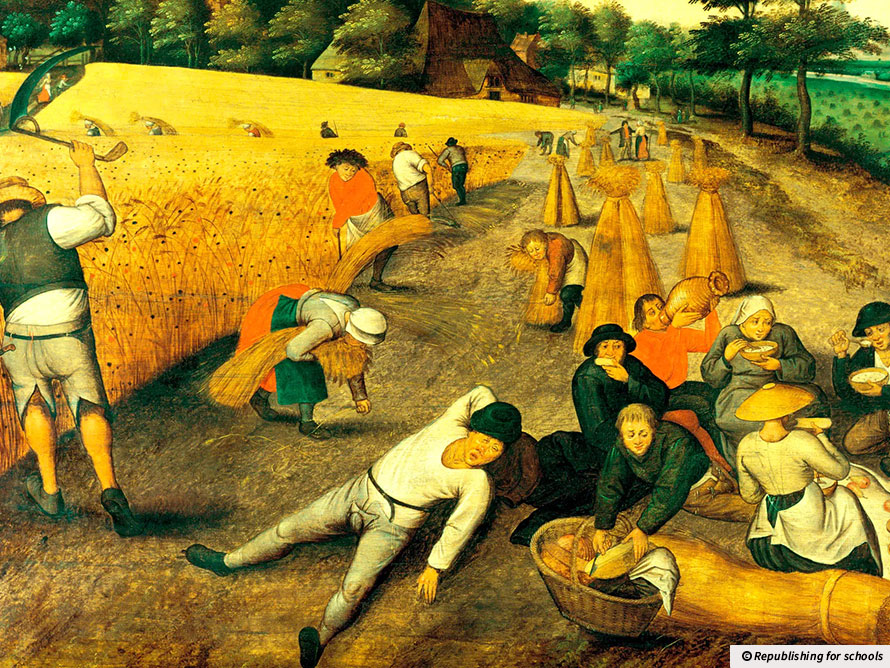Was medieval life better? You might think of the Middle Ages as an era of ignorance, strife and disease. A new nostalgia for medieval lifestyles is turning these stereotypes on their head.
The right to nap and 120 days work a year
 Work hard play hard: Many people today work longer hours than medieval peasants, experts think.
Work hard play hard: Many people today work longer hours than medieval peasants, experts think. Glossary
Smallpox - A disease estimated to have killed 300 million people in the 20th Century.
Leprosy - A chronic bacterial disease. Once known pejoratively as lepers, sufferers were historically forced to live in colonies, isolated from others.
Productivity - The rate at which an individual, company or group produce work or make something.
Superstition - A belief or practice that is not entirely based on facts or reality.
Omnipresent - Always present.
Utopian - Impossibly perfect. The term comes from an ancient Greek phrase meaning "no-place" invented by Henry VIII's chancellor, Sir Thomas More, in 1516, as the name of an imaginary, ideal island.
Agrarian - Using the land for farming.
Burnout - When someone becomes physically and emotionally exhausted after working hard for a long time.
Prevalent - Common.
